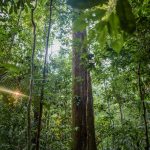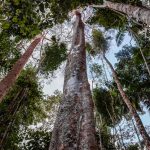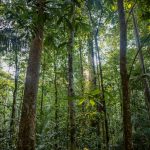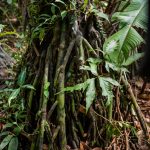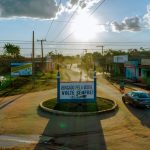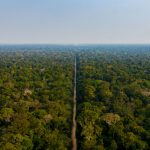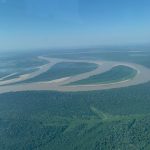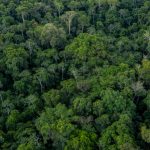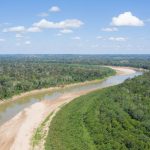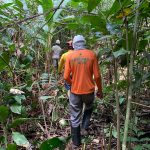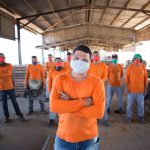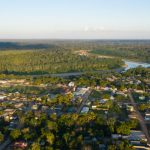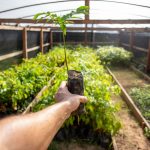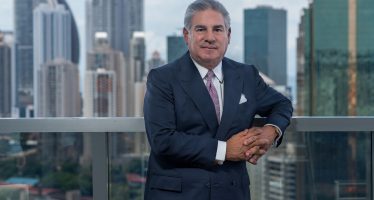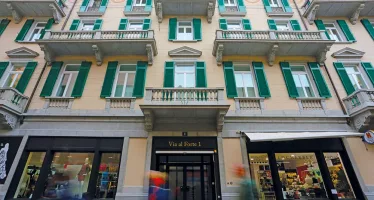Marcos Preto, CEO of Agrocortex: Unlocking Value of Forestry Projects
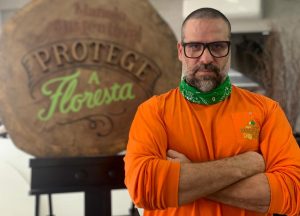
CEO of Agrocortex: Marcos Preto
REDD projects fight logging and environmental destruction of the Earth’s ‘green lungs’ – the amazing and irreplaceable rainforests of the Amazon.
Voluntary carbon credits are in high demand, increasingly so over the past year, and there are growing opportunities for carbon-offset project developers.
Marcos Preto is CEO of Agrocortex and head of Agrocortex’s REDD (reducing emissions from deforestation and forest degradation) project in Brazil. Preto sees the sector’s potential – but acknowledges that carbon credits need to be properly understood and supported if their value is to be unlocked.
“In addition to preventing forest destruction, REDD projects protect biodiversity,” he says. “It is one of the only remuneration options available to landowners to protect forests and prevent alternative land uses that further destroy the environment.”
The Agrocortex project prevented the deforestation of some 5,300 hectares of land between 2014 and 2019. It has generated new sources of income and created jobs in one of the poorest regions Brazil.
Agrocortex has a forest that is being correctly managed while achieving social inclusion, economic development, forest protection and carbon offsetting.
“Buyers need to know the whole story behind a project,” says Preto. “I believe that they have a need and obligation to know what they are supporting, just as we have a need and obligation to deliver exactly what is described in our project plans and objectives.
“We send our buyers materials that highlight the characteristics of our project, the company, our shareholders and activities.” These materials are supported by photos, videos, certifications and all other mandatory documentation.
“We also explain our unique corporate structure to buyers. Our main shareholder is one of the largest private investment groups in Spain, and this gives us high levels of security and credit quality. To know that the money invested will be used correctly, and in accordance with best practices, is important for our supporters.”
The firm’s efforts have attracted recognition and awards, which Preto says in encouraging. “We work in an area of 186,000 hectares in the middle of the ‘Arc of Amazonian Deforestation’ – an area that is under great pressure.
“It is also an important biodiversity corridor that connects the Andes to the Amazon rainforest. It is estimated that there are more than 400 species of birds in the project area, which represents about 20 percent of the species found in Brazil.
“We have generated positive social and economic impacts in the form of jobs and alternative sources of income. We are continuously searching for the highest standards in our processes and activities. We have VCS and SocialCarbon verifications and FSC certifications.
“We also reinvest of 100 percent of the sales of our carbon credits back into our businesses and our activities are supported by strong partners.”
So, what do new entrants to the market need to know? “It is the same for new entrants and established buyers of carbon credits: know your projects and do not compare on price alone.
“GHG emission reduction projects are important, regardless of the type of project, but it is important to be sure of the quality of the project. Focusing on the price alone does not acknowledge this.
“Buyers should request all the essential information that guarantees the quality of the project, such as third-party certification and verification, as well as results achieved.”
Knowing the project, the owners, the developers, and the social, economic, and environmental benefits is also important.”
Looking to the future, Preto sees three main challenges. “There is a lack of knowledge and experience in the carbon offsetting markets: unfair competition from low-price, low-quality credits, and pressure from customers or buyers to acquire credits at a low price.
“Many buyers analyse only the cost. They do not consider the importance of this revenue for project developers. It is this revenue that must be reinvested in existing projects or in the development of new ones.
“We are asking buyers to choose carbon credits carefully and above all, value high-quality projects. We need everyone’s support on this.”
Forest conservation is becoming more economically competitive, compared with other land uses. “We plan to consolidate our existing projects and develop new ones,” says Preto, “but we need more support from the market and buyers of carbon credits.”
REDD project
The primary objective of the REDD Project is to avoid unplanned destruction of Amazonian rainforest. The project area is located on a private property, Fazenda Seringal Novo Macapá, situated in the municipalities of Manoel Urbano, Pauini and Boca do Acre in the south-western Amazon.
The Agrocortex REDD+ project has established a barrier to deforestation, making an important contribution to biodiversity and climate regulation.
The main deforestation activities are cattle ranching, timber harvesting – legal and illegal – and infrastructure in the form of highways.
Conservation activities include increased monitoring by outside agents and the banning of unpermitted degradation. Other measures include forest fire prevention and firefighting training.
Strong growth Predicted
The REDD project has been widely praised for its conservation of the threatened Brazilian Amazon biome. The benefits of its work have helped to give Agrocortex benchmark status.
It has been acknowledged for huge contributions to economic, environmental and social outcomes in terms of education and the generation of new sources of sustainable incomes for the community.
“We hope that the increasing recognition will bring us visibility and support,” says Preto, “in addition to serving as an inspiration for other projects.”
You may have an interest in also reading…
La Trobe Financial: Unpacking the Rise of Private Markets and Private Credit
Private markets—particularly private credit—have experienced a marked surge in investor interest in recent years. Though this asset class has existed
Active RE Reaps Benefits of Being an Early Adopter with Juan Antonio Niño
Over the years, Juan Antonio Niño has established his place in the hierarchy of Latin America’s financial professionals. The chairman
Care, Fairness, Trust, and Respect Allow Copernicus to Look Beyond
Deep financial expertise and a holistic approach to business drive Swiss firm’s expansion Independent financial group Copernicus is true to















































































